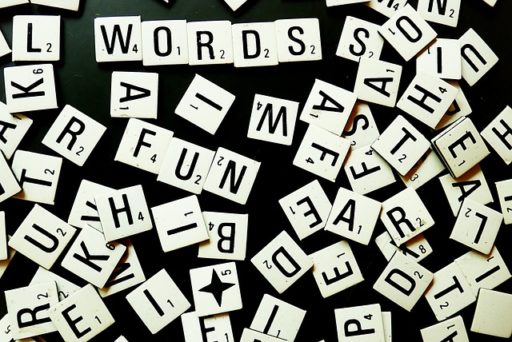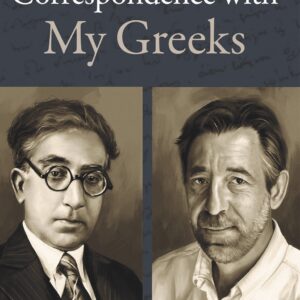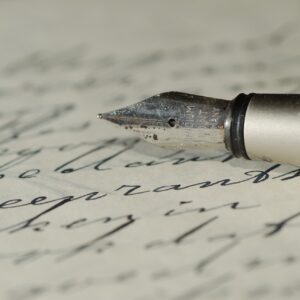Lately I’ve been interrogating some of the hundreds of books on my shelves. To ones I haven’t read in decades — or ever — I ask: Why do I keep you?
This was my question to H. L. Mencken’s classic, The American Language. Mencken, a Baltimore journalist, published his first edition of this tome in 1919. My edition is the Fourth, published in 1936 and claiming on the cover to be “Corrected, Enlarged, and Rewritten.” (“Enlarged” indeed; it runs to nearly 800 pages.) A sticker inside names the neighborhood bookstore where I bought it, which closed decades ago; so I’m pretty sure that I bought the Mencken when I was writing my 1983 book on popular language.
What fun and erudition I missed by not reading The American Language back then—or since.
Mencken opens his book with a detailed account of the “war” (his term, complete with a host of battle metaphors) between England’s English and America’s English, that ran from revolutionary times up to his present of 1936. The account is enlivened by quotations, mostly from the British, heaping scorn on what they derogatorily called “Americisms.”
What were “Americanisms”? Well, as our country grew and spread westward, new situations naturally called for new words. Noah Webster celebrated this in a 1789 book:
“As an independent nation, our honor requires us to have a system of our own, in language as well as government.… Several circumstances render a future separation of the American tongue from the English necessary and unavoidable.… Numerous local causes, such as a new country, new associations of people,…and some intercourse with tribes wholly unknown in Europe, will introduce new words into the American tongue. These causes will produce, in a course of time, a language in North America as different from the future language of England as the modern Dutch, Danish and Swedish are from the German.”
So, early on we got, for instance, block (of houses), bookstore, buckwheat-cake, and bundling. At the same time, American meanings of certain words differentiated themselves from the English: for instance, shoe, corn, bug, sick, and barn.
The English were up in arms over these “corruptions” of their language, scorning “Americanisms” as “barbarisms.” A Captain Hamilton, visiting the U.S. in 1833, was scandalized that “the Americans have chosen arbitrarily to change the meaning of certain old and established English words—like the word clever, which “has here no connexion with talent, and simply means pleasant or amiable. Thus a good-natured blockhead in the American vernacular is a clever man.” The Captain’s horrified conclusion: “Unless the present progress of change be arrested…, in another century the dialect of the Americans will become utterly unintelligible to an Englishman” and Americans “will be cut off from the advantages arising from their participation in British literature.”
But, horror of horrors, not only was this “progress of change” not “arrested”; in the early twentieth century it began infiltrating the British language itself. The infiltrator was movies, especially after the talkies made it across the Atlantic.
With the talkies, “the invasion of England by Americans” (as Mencken puts it) gained unconquerable strength. British journalists even aided the invaders by explaining for their readers the meanings of such words as hobo, hoodlum, dead-beat, graft, quitter, cinch, and live-wire. One journalist wrote in 1920:
“I visited two picture theaters today for the express purpose of collecting slang phrases and of noticing the effect of the new language on the child as well as on the adult. What the villain said to the hero when the latter started to argue with him was, ‘Cut out that dope.’… The comic man announced his marriage by saying, ‘I’m hitched.’ “
But as much as adults protested, there was no stopping English youth from grabbing up American slang. A chief constable in a town near Liverpool admitted defeat in his annual report:
“I cannot refrain from commenting adversely on the pernicious and growing habit of…youths to use Americanisms, with nasal accompaniment, in order to appear, in their own vernacular, tough guys. On one of my officers going to search him, a young housebreaker told him to ‘Lay off, cop.’ Oh-yeahs are frequent in answer to charges…”
Finally, the general British alarm was sounded in the House of Commons on February 4, 1930, by Conservative M.P. Sir Alfred Knox, who demanded that steps be taken to “protect the English language by limiting the import of American talkie films.” In a press interview, Knox elaborated:
“I don’t go to the cinema often, but I had to be present at one a few days ago, when an American talkie film was shown. The words and accent were perfectly disgusting, and there can be no doubt that such films are an evil influence on our language.”
This is how the situation stood in 1936, as Mencken summarizes it in the Fourth Edition: “This war upon Americanisms is in progress all the time, but it naturally has its pitched battles and its rest-periods between. For months there may be,” he goes on (playing delightfully with a then-recent movie title) “relative quiet on the linguistic Western front, and then some alarmed picket fires a gun and there is what the German war communiques used to call a sharpening of activity.”
At the same time, however, some among the English—a few, but still some—were laying down their arms and walking across the battle line to shake hands with the new American language. As one put it:
“Show me the alert Englishman who will not find a stimulation in those nuggety word-groupings which are the commonplaces in good American conversation. They are like flashes of crystal. They come from all kinds of people — who are brilliantly innocent of enriching the language.”
Virginia Woolf concurred in a 1925 article in the Saturday Review of Literature:
“In England…,the word-coining power has lapsed;…one may search in vain for a single new word. It is significant that when we want to freshen our speech, we borrow from American — poppycock, rambunctious, flip-flop, booster, good mixer.”
I guess that means that we Americans won the language war—or should I say cleaned up?
Peggy Rosenthal has a PhD in English Literature. Her first published book was Words and Values, a close reading of popular language. Since then she has published widely on the spirituality of poetry, in periodicals such as America, The Christian Century, and Image, and in books that can be found here.





